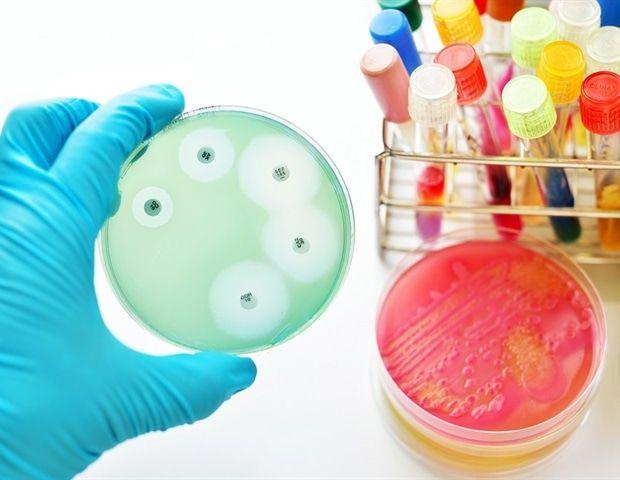Revolutionary AI-Powered Biosensor Enables Early Cancer Detection Using Light Signals
3 Sources
3 Sources
[1]
New biosensor uses light and AI to detect cancer in its earliest stages
National Research Council of Science & TechnologyJul 10 2025 Dr. Ho Sang Jung and his research team from the Advanced Bio and Healthcare Materials Research Division at the Korea Institute of Materials Science(KIMS) have developed an optical biosensor capable of detecting trace amounts of cancer cell DNA in the bloodstream with high sensitivity, enabling early cancer diagnosis. Compared to conventional liquid biopsy techniques, this biosensor offers superior sensitivity and specificity, and its standout feature lies in its ability to diagnose cancer early using only light signals and AI-based analysis, without the need for complex testing procedures. When cancer cells develop, subtle chemical changes occur on the surface of DNA in the bloodstream-a phenomenon known as DNA methylation. In the early stages of cancer, the concentration of methylated DNA is extremely low, making it difficult to detect with conventional biosensors at high sensitivity. To overcome this challenge, the research team developed a biosensor material technology that enables the detection of methylated DNA using high-sensitivity optical signals and artificial intelligence analysis, without requiring additional processing or complex analysis steps. The research team integrated high-sensitivity optical signaling and artificial intelligence analysis with plasmonic materials. These materials can amplify the optical signals of DNA molecules by more than 100 million times in response to light, enabling the detection of even extremely small amounts of DNA. As a result, the biosensor is capable of identifying methylated DNA at concentrations as low as 25 fg/mL (femtograms per milliliter) in the early stages of cancer development. To put this in perspective, 25 fg/mL is equivalent to dissolving 1/25,000th of a sugar grain in a single drop of water. This represents a 1,000-fold improvement in sensitivity compared to conventional biosensors. The research team applied the developed biosensor to blood samples from 60 colorectal cancer patients, achieving a 99% accuracy rate in detecting the presence of cancer. Moreover, the biosensor successfully distinguished between cancer stages from Stage I to Stage IV with high precision. The analysis required only 100 μL (microliters) of blood and was completed within 20 minutes, demonstrating a highly simple and rapid diagnostic process. This technology enables the high-sensitivity detection of trace amounts of cancer DNA without any pre-processing, making it highly competitive for use in the early cancer diagnosis market. Compared to conventional equipment, it significantly reduces both analysis time and cost, allowing for potential application in hospitals, health screening centers, at-home diagnostic kits, and portable diagnostic devices. It is not only suitable for precision medicine, but also highly effective for Point-of-Care Testing (POCT) applications. This technology serves as a next-generation diagnostic platform capable not only of early cancer detection, but also of predicting prognosis and monitoring treatment response."He added, "We plan to expand its application to a wide range of diseases, including autoimmune disorders and neurological conditions." Dr. Ho Sang Jung, Senior Researcher at KIMS and lead of the project This research was funded by the Bio & Medical Technology Development Program and the Global Young Researcher Program of the National Research Foundation of Korea (NRF), as well as the basic research program of the Korea Institute of Materials Science (KIMS). The results were published on May 9 in the May 2025 issue of Advanced Science (Impact Factor: 14.3), a world-renowned scientific journal. National Research Council of Science & Technology Journal reference: Al Ja'farawy, M. S., et al. (2025). Plasmonic Molecular Entrapment for Label‐Free Methylated DNA Detection and Machine‐Learning Assisted Quantification. Advanced Science. doi.org/10.1002/advs.202503257.
[2]
Researchers develop biosensor based on light and AI for early diagnosis of cancer
Dr. Ho Sang Jung and his research team from the Advanced Bio and Healthcare Materials Research Division at the Korea Institute of Materials Science (KIMS) have developed an optical biosensor capable of detecting trace amounts of cancer cell DNA in the bloodstream with high sensitivity, enabling early cancer diagnosis. The findings are published in the journal Advanced Science. Compared to conventional liquid biopsy techniques, this biosensor offers superior sensitivity and specificity, and its standout feature lies in its ability to diagnose cancer early using only light signals and AI-based analysis, without the need for complex testing procedures. When cancer cells develop, subtle chemical changes occur on the surface of DNA in the bloodstream -- a phenomenon known as DNA methylation. In the early stages of cancer, the concentration of methylated DNA is extremely low, making it difficult to detect with conventional biosensors at high sensitivity. To overcome this challenge, the research team developed a biosensor material technology that enables the detection of methylated DNA using high-sensitivity optical signals and artificial intelligence analysis, without requiring additional processing or complex analysis steps. The research team integrated high-sensitivity optical signaling and artificial intelligence analysis with plasmonic materials. These materials can amplify the optical signals of DNA molecules by more than 100 million times in response to light, enabling the detection of even extremely small amounts of DNA. As a result, the biosensor is capable of identifying methylated DNA at concentrations as low as 25 fg/mL (femtograms per milliliter) in the early stages of cancer development. To put this in perspective, 25 fg/mL is equivalent to dissolving 1/25,000th of a sugar grain in a single drop of water. This represents a 1,000-fold improvement in sensitivity compared to conventional biosensors. The research team applied the developed biosensor to blood samples from 60 colorectal cancer patients, achieving a 99% accuracy rate in detecting the presence of cancer. Moreover, the biosensor successfully distinguished between cancer stages from Stage I to Stage IV with high precision. The analysis required only 100 μL (microliters) of blood and was completed within 20 minutes, demonstrating a highly simple and rapid diagnostic process. This technology enables the high-sensitivity detection of trace amounts of cancer DNA without any pre-processing, making it highly competitive for use in the early cancer diagnosis market. Compared to conventional equipment, it significantly reduces both analysis time and cost, allowing for potential application in hospitals, health screening centers, at-home diagnostic kits, and portable diagnostic devices. It is not only suitable for precision medicine, but also highly effective for Point-of-Care Testing (POCT) applications. Dr. Ho Sang Jung, Senior Researcher at KIMS and lead of the project, stated, "This technology serves as a next-generation diagnostic platform capable not only of early cancer detection, but also of predicting prognosis and monitoring treatment response. "We plan to expand its application to a wide range of diseases, including autoimmune disorders and neurological conditions."
[3]
Instant Cancer Diagnosis with Light and AI! | Newswise
Newswise -- Dr. Ho Sang Jung and his research team from the Advanced Bio and Healthcare Materials Research Division at the Korea Institute of Materials Science(KIMS) have developed an optical biosensor capable of detecting trace amounts of cancer cell DNA in the bloodstream with high sensitivity, enabling early cancer diagnosis. Compared to conventional liquid biopsy techniques, this biosensor offers superior sensitivity and specificity, and its standout feature lies in its ability to diagnose cancer early using only light signals and AI-based analysis, without the need for complex testing procedures. When cancer cells develop, subtle chemical changes occur on the surface of DNA in the bloodstream -- a phenomenon known as DNA methylation. In the early stages of cancer, the concentration of methylated DNA is extremely low, making it difficult to detect with conventional biosensors at high sensitivity. To overcome this challenge, the research team developed a biosensor material technology that enables the detection of methylated DNA using high-sensitivity optical signals and artificial intelligence analysis, without requiring additional processing or complex analysis steps. The research team integrated high-sensitivity optical signaling and artificial intelligence analysis with plasmonic materials. These materials can amplify the optical signals of DNA molecules by more than 100 million times in response to light, enabling the detection of even extremely small amounts of DNA. As a result, the biosensor is capable of identifying methylated DNA at concentrations as low as 25 fg/mL (femtograms per milliliter) in the early stages of cancer development. To put this in perspective, 25 fg/mL is equivalent to dissolving 1/25,000th of a sugar grain in a single drop of water. This represents a 1,000-fold improvement in sensitivity compared to conventional biosensors. The research team applied the developed biosensor to blood samples from 60 colorectal cancer patients, achieving a 99% accuracy rate in detecting the presence of cancer. Moreover, the biosensor successfully distinguished between cancer stages from Stage I to Stage IV with high precision. The analysis required only 100 μL (microliters) of blood and was completed within 20 minutes, demonstrating a highly simple and rapid diagnostic process. This technology enables the high-sensitivity detection of trace amounts of cancer DNA without any pre-processing, making it highly competitive for use in the early cancer diagnosis market. Compared to conventional equipment, it significantly reduces both analysis time and cost, allowing for potential application in hospitals, health screening centers, at-home diagnostic kits, and portable diagnostic devices. It is not only suitable for precision medicine, but also highly effective for Point-of-Care Testing (POCT) applications. Dr. Ho Sang Jung, Senior Researcher at KIMS and lead of the project, stated,"This technology serves as a next-generation diagnostic platform capable not only of early cancer detection, but also of predicting prognosis and monitoring treatment response."He added, "We plan to expand its application to a wide range of diseases, including autoimmune disorders and neurological conditions." This research was funded by the Bio & Medical Technology Development Program and the Global Young Researcher Program of the National Research Foundation of Korea (NRF), as well as the basic research program of the Korea Institute of Materials Science (KIMS). The results were published on May 9 in the May 2025 issue of Advanced Science (Impact Factor: 14.3), a world-renowned scientific journal. ----------------------------------------------------------------------- ### About Korea Institute of Materials Science(KIMS) KIMS is a non-profit government-funded research institute under the Ministry of Science and ICT of the Republic of Korea. As the only institute specializing in comprehensive materials technologies in Korea, KIMS has contributed to Korean industry by carrying out a wide range of activities related to materials science including R&D, inspection, testing&evaluation, and technology support.
Share
Share
Copy Link
Korean researchers develop a highly sensitive optical biosensor that uses AI and light to detect early-stage cancer DNA, potentially revolutionizing cancer diagnosis and treatment monitoring.
Breakthrough in Early Cancer Detection
Researchers at the Korea Institute of Materials Science (KIMS) have developed a groundbreaking optical biosensor that combines light signals and artificial intelligence to detect cancer in its earliest stages. Led by Dr. Ho Sang Jung, the team has created a technology that surpasses conventional liquid biopsy techniques in both sensitivity and specificity
1
.The Science Behind the Biosensor

Source: Medical Xpress
The biosensor targets DNA methylation, a subtle chemical change that occurs on the surface of DNA in the bloodstream when cancer cells develop. By integrating high-sensitivity optical signaling with artificial intelligence analysis and plasmonic materials, the team has achieved a remarkable feat: the ability to detect methylated DNA at concentrations as low as 25 femtograms per milliliter (fg/mL)
2
.To put this sensitivity into perspective, it's equivalent to detecting 1/25,000th of a sugar grain dissolved in a single drop of water. This represents a 1,000-fold improvement over conventional biosensors, making it possible to identify cancer at its earliest stages when treatment is most effective.
Impressive Clinical Results

Source: News-Medical
The research team tested their biosensor on blood samples from 60 colorectal cancer patients, achieving a 99% accuracy rate in detecting the presence of cancer. Moreover, the biosensor successfully distinguished between cancer stages from Stage I to Stage IV with high precision
3
.What sets this technology apart is its simplicity and speed. The analysis requires only 100 microliters of blood and can be completed within 20 minutes, demonstrating a highly efficient diagnostic process.
Related Stories
Potential Applications and Future Developments
This innovative biosensor technology has the potential to revolutionize the early cancer diagnosis market. Its high sensitivity, coupled with the ability to detect trace amounts of cancer DNA without pre-processing, makes it a strong contender for various applications:
- Hospitals and health screening centers
- At-home diagnostic kits
- Portable diagnostic devices
- Point-of-Care Testing (POCT)
Dr. Jung envisions this technology as a next-generation diagnostic platform capable of not only early cancer detection but also predicting prognosis and monitoring treatment response. The team plans to expand its application to a wide range of diseases, including autoimmune disorders and neurological conditions
1
.Research Impact and Publication
This groundbreaking research was funded by the Bio & Medical Technology Development Program and the Global Young Researcher Program of the National Research Foundation of Korea (NRF), as well as the basic research program of the Korea Institute of Materials Science (KIMS). The results were published in the May 2025 issue of Advanced Science, a prestigious scientific journal with an impact factor of 14.3
3
.As this technology continues to develop, it holds the promise of transforming cancer diagnosis and treatment monitoring, potentially saving countless lives through early detection and intervention.
References
Summarized by
Navi
Related Stories
MIT and Microsoft develop AI system CleaveNet to design sensors for early cancer detection
07 Jan 2026•Science and Research

Revolutionary Blood Test Detects Early-Stage Solid Tumors with High Accuracy Using AI
01 Aug 2025•Health

AI and Laser Technology Show Promise in Early Breast Cancer Detection
27 Dec 2024•Health

Recent Highlights
1
ByteDance's Seedance 2.0 AI video generator triggers copyright infringement battle with Hollywood
Policy and Regulation

2
Demis Hassabis predicts AGI in 5-8 years, sees new golden era transforming medicine and science
Technology

3
Nvidia and Meta forge massive chip deal as computing power demands reshape AI infrastructure
Technology





